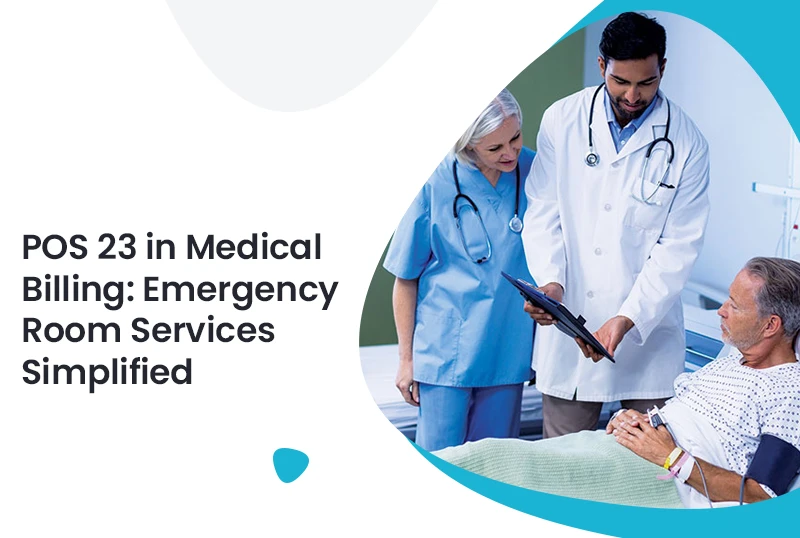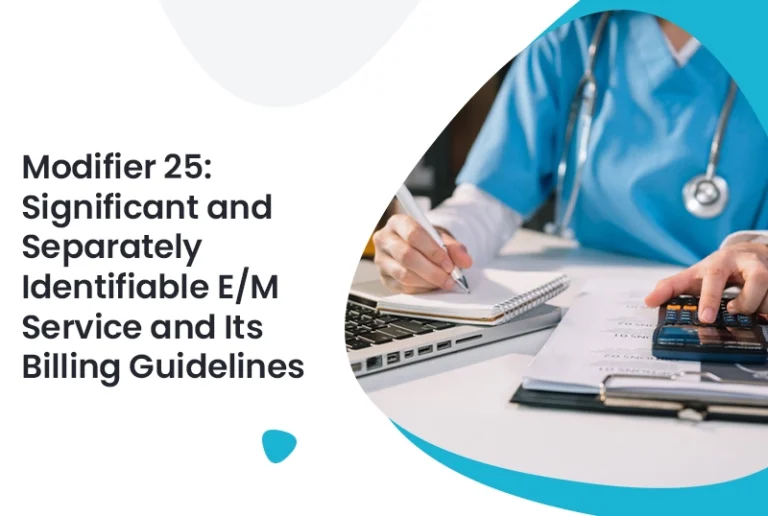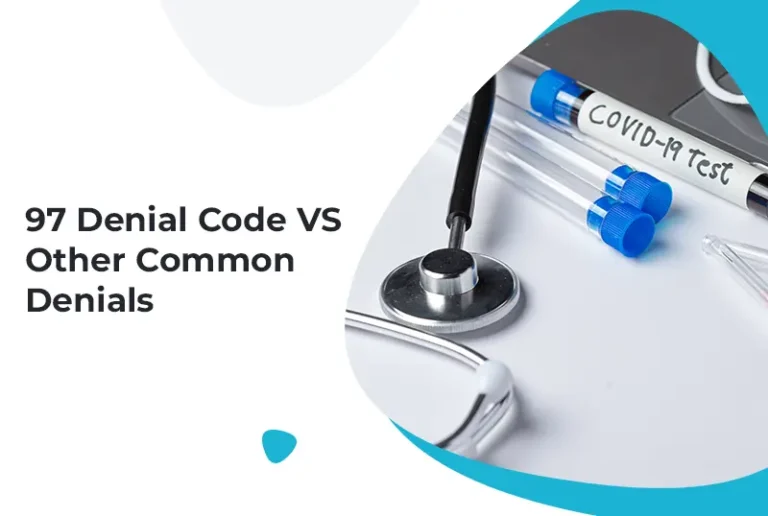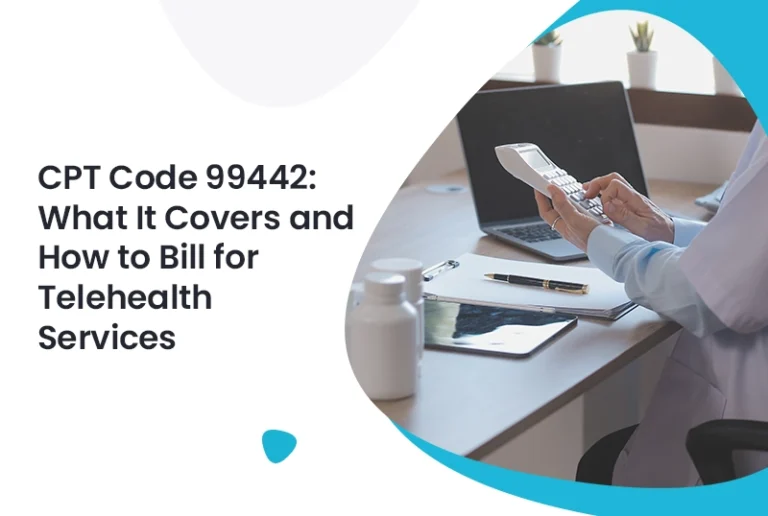Emergency room services are intense, fast-paced, and critical. However, behind the scenes, accurate billing and proper coding are just as important as clinical care. One critical detail that ensures proper billing and reimbursement for these services is the correct use of POS 23 in medical billing. In fact, working with a medical billing company can help ensure that the POS codes are used correctly, and claims are processed smoothly.
So, what is POS 23? Why is it important? And how can using it properly support your revenue flow and claim accuracy? Let’s break it all down.
What Does POS 23 Mean?
POS 23, or Place of Service code 23, indicates that a medical service was provided in a hospital’s emergency room. This code informs payers, such as Medicare, Medicaid, or private insurers, that the treatment occurred in an urgent, unscheduled care setting. Despite being a small piece of information on a claim form, it plays a crucial role in determining how payers process and reimburse your claims.
When to Use
POS 23 should be used when services are delivered in a hospital emergency department, and the patient is:
- Not admitted as an inpatient
- Undergoing urgent, unscheduled care
- Stabilizing for transfer or discharge
For example:
- A patient walks in with chest pain and receives an EKG, blood tests, and a physician evaluation
- A child is treated for a high fever and respiratory distress
- A car accident victim is examined and stitched up, then sent home
When Not to Use
On the other hand, do not use POS 23 in the following situations:
- If the patient has been formally admitted to the hospital (use POS 21 – Inpatient Hospital)
- For services provided in a freestanding urgent care clinic (use POS 20 – Urgent Care Facility)
- When the patient receives follow-up care in an outpatient clinic (use POS 22 – Outpatient Hospital)
Using POS 23 incorrectly may result in claim denials or payment delays. Therefore, it is essential to get the coding right.
Why POS 23 Matters for Billing and Reimbursement
The proper use of POS 23 directly impacts how much you get paid—and whether you get paid at all. Emergency room services are often more complex and intense, which means they typically warrant higher reimbursement rates. However, these higher rates come with stricter scrutiny from payers. As a result, ensuring that It is used correctly is crucial to ensure timely and accurate reimbursement.
To guarantee you are reimbursed fairly, you must:
- Accurately code based on proper documentation
- Clearly reflect the nature of the emergency visit
- Ensure the notes justify the level of urgency and care delivered
Missing or incorrect information can lead to underpayment or denials, significantly impacting your practice’s financial health.
Key Documentation Tips
To properly support claims billed under POS 23, make sure your clinical and administrative staff document the following:
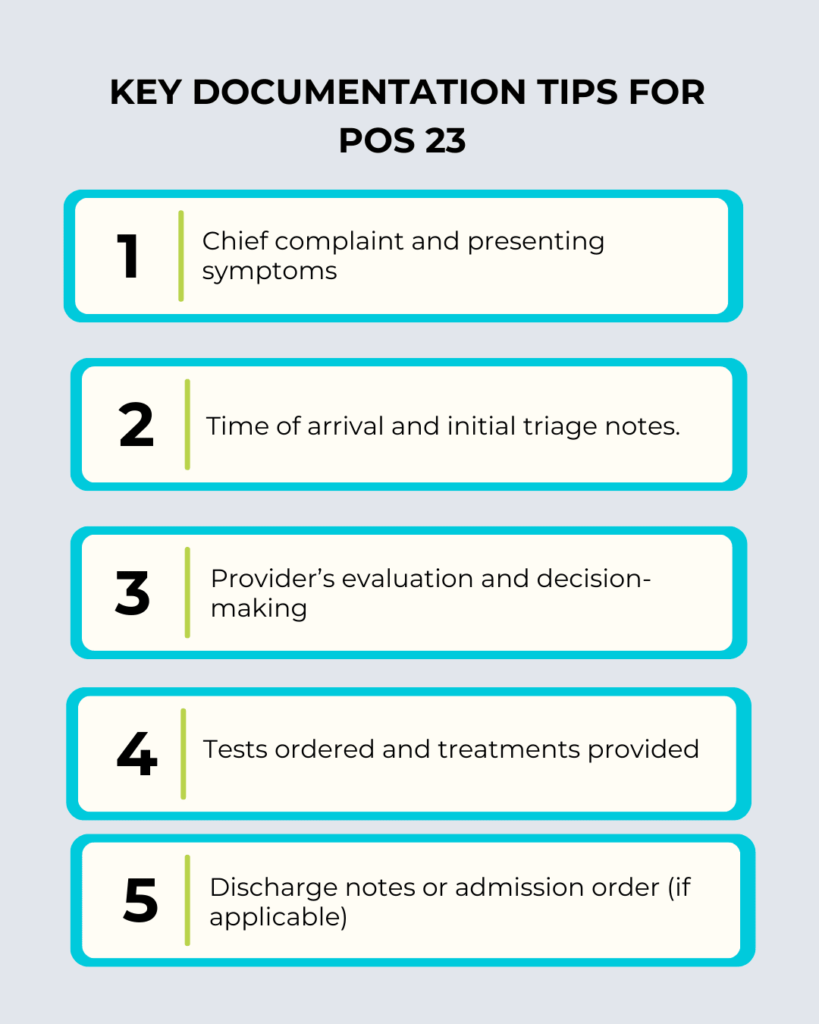
Thorough and timely documentation not only protects your practice but also ensures that patients receive proper continuity of care.
The Role of Accurate POS Coding in RCM
POS 23 is more than just a billing code; it is a vital part of your overall revenue cycle management (RCM) strategy. By coding services correctly, you can:
- Reduce claim rejections
- Shorten payment turnaround times
- Avoid compliance issues during audits
- Improve billing transparency
In high-pressure emergency departments, having the right coding processes in place ensures that your team can focus on patient care without worrying about revenue leaks.
How Expert Billing Support Can Help
Emergency room billing is unique and often more complex than in other settings. Partnering with professionals who understand the nuances of medical billing services can be a game-changer for your practice.
Here’s how expert billing support helps with POS 23:
- Ensure all emergency room visits are coded correctly
- Submit clean claims quickly to avoid delays
- Track denials and resubmit with proper documentation
- Keep your team informed of evolving payer rules
By outsourcing to a trusted billing partner or using experienced coders in-house, your facility can maintain financial stability even in the most unpredictable care environments.
Avoid These Common POS 23 Errors
To protect your revenue and avoid compliance risks, steer clear of these frequent mistakes:
- Using POS 23 for non-emergency outpatient visits
- Billing follow-up appointments under emergency care codes
- Failing to update POS when the patient is later admitted
- Not documenting time-sensitive decisions or interventions
Even small errors can flag your claims for audits or delay payments, making quality control essential.
Final Thoughts: Why POS 23 Is Essential
Emergency room services are intense, fast-paced, and critical. But behind the scenes, accurate billing and proper coding are just as important as clinical care.
Whether you’re managing a standalone ER or part of a larger hospital system, knowing when and how to use POS 23 can save time, reduce financial strain, and keep your operations running smoothly.
FAQs
Q: When should POS 23 be used?
A: Use it for emergency room visits where the patient is not admitted but receives urgent care, stabilization, or is discharged.
Q: Can POS 23 be used for outpatient visits?
A: No. For outpatient care, use POS 22, and for urgent care, use POS 20.
Q: What happens if POS 23 is used incorrectly?
A: Incorrect use can result in claim denials or delayed payments. Ensure it’s only used for emergency room services where admission hasn’t occurred.
Q: Why is POS 23 important?
A: It is crucial for proper reimbursement for emergency room services, which typically involve higher complexity and higher reimbursement rates.
Q: What documentation is needed?
A: Document the chief complaint, triage notes, provider evaluation, tests, treatments, and discharge notes.
Q: How does accurate POS coding affect revenue?
A: Proper coding reduces claim rejections, speeds up payments, avoids compliance issues, and supports your practice’s financial health.
Q: What mistakes should be avoided?
- Using POS 23 for outpatient care
- Billing follow-up visits under emergency codes
- Failing to document critical interventions
Q: How can expert billing help?
Expert billing ensures correct POS 23 coding, fast claim submission, denial tracking, and compliance with payer rules.

